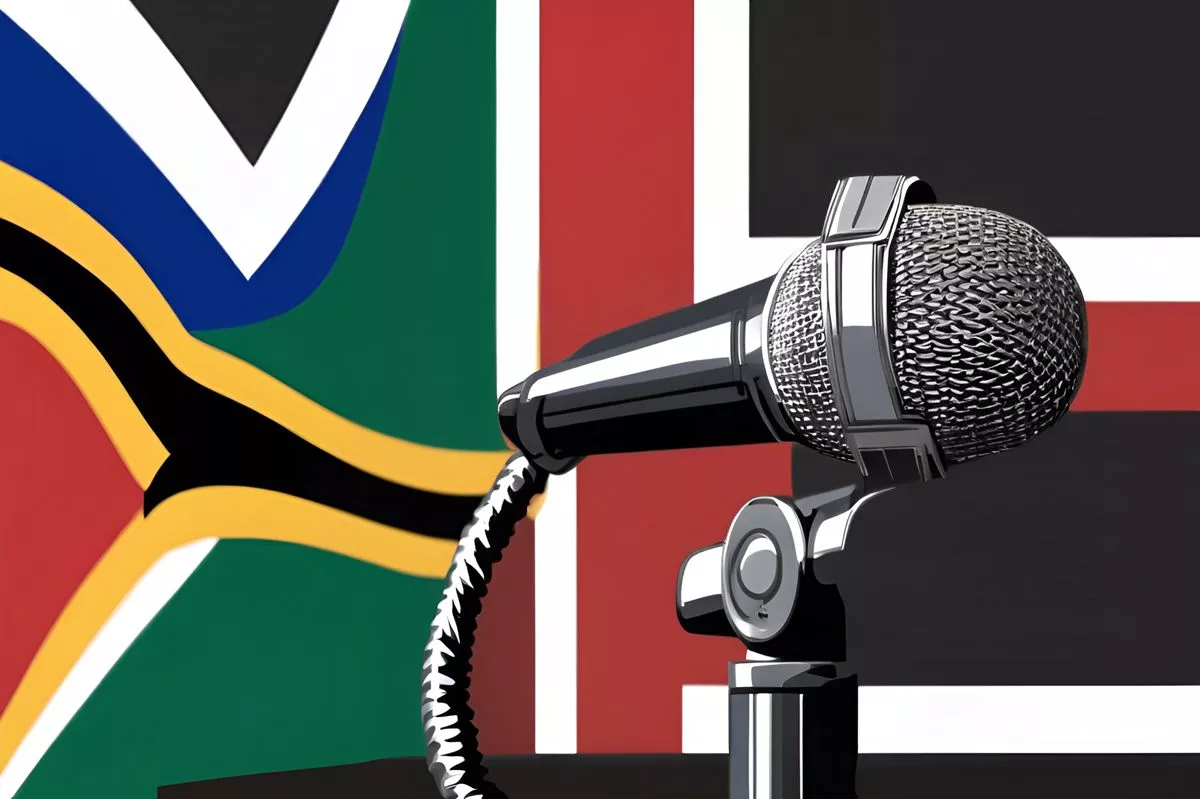South Africa’s National Assembly has made a significant decision to strengthen democracy by allowing the public to directly petition without the need for parliamentary intermediaries. This move aims to create a more transparent and accessible legislative process, breaking down barriers to democratic participation. Petitions must comply with guidelines for language, signing, submission, clarity, decorum, and supplementary documentation, and aim for action within the spectrum of the House, national government, or a Minister. This change signifies a new era of democratic participation, shaping the future of public involvement in governance.
The National Assembly of South Africa has made a transformative decision to enhance democratic participation by allowing the public to petition directly without parliamentary intermediaries. This move is designed to cultivate a more transparent and accessible legislative process and break down barriers to democratic participation. Petitions should aim for action within the broad spectrum of the House, the national government, or a Minister, and comply with guidelines for language, signing, submission, clarity, decorum, and supplementary documentation.
South Africa’s National Assembly Pushes for Democratic Participation
In a transformative development, the National Assembly of South Africa has made an explicit decision to enhance democratic participation. This step comprises amendments to its Rules and Guidelines for Petitions. This decision adds a new dimension to public engagement in parliamentary procedures by allowing the public to petition the National Assembly directly.
Previously, a Member of Parliament was needed to act as a facilitator for petitions, bridging the gap between the public and the House. This was the standard procedure until the recent amendment. The advantage of direct petitions, without parliamentary intermediaries, was a privilege only reserved for the National Council of Provinces (NCOP).
This innovative reform fundamentally revolutionizes the public’s involvement in governance, spurring direct access to Parliament. This change is viewed as a catalyst for increased transparency, nurturing a more responsive legislative entity.
More Than a Procedural Alteration
This amendment signifies far more than a mere procedural change. It embodies a profound commitment to the expedient and direct redressal of service delivery issues and other public concerns linked to governmental obligations. It stands as a testament to the National Assembly’s dedication to cultivating a functional mechanism to address public complaints.
A noteworthy development in the petition process is the implementation of a Petitions Framework, applicable to both Houses of Parliament. This framework encompasses a three-month period for processing each petition, ensuring that the needs of the South African people are responded to promptly and effectively.
This forward-thinking approach highlights the National Assembly’s commitment to continual enhancement of its oversight and accountability measures. It aims to probe more deeply into the issues impacting its citizens and their quality of life.
Breaking Down Barriers to Democracy
By allowing direct submissions of petitions under specific conditions, the National Assembly is breaking down barriers to democratic participation. This move is designed to cultivate a more transparent and accessible legislative process.
As per the Constitution, the National Assembly and its committees have the authority to accept petitions from individuals and organizations. As the volume of petitions increases, the amendments are intended to streamline the handling of these vital documents.
Petitions can be classified into:
- Single petition: A solitary submission pertaining to a specific issue.
- Collective petition: A collaborative submission with multiple signatures on a shared dilemma.
- Multiple/ group/ mass petition: Submissions from individuals or groups related to the same subject.
- Associated petition: Submissions from an association or its representative on a distinct topic.
These submissions need to abide by the format prescribed by the Speaker and comply with the guidelines of the Rules Committee, particularly Assembly Rules 345 to 347. These guidelines encompass language, signing, submission, clarity, decorum, and provision of supplementary documentation.
Petitions should aim for action within the broad spectrum of the House, the national government, or a Minister. They should avoid revisiting matters already considered unless new, pertinent information arises. They must also refrain from meddling with ongoing legal proceedings or reversing legal judgments. Moreover, they need to avoid matters currently under scrutiny in the National Assembly.
A New Era of Democratic Participation
This amendment signifies a change in the role of the National Assembly, showcasing its transformation into an activist, people-centric body. It guarantees that the public’s voice is not just heard, but acted upon promptly, marking the onset of a new era in democratic participation. It’s a landmark in South Africa’s parliamentary history, shaping the future of public participation in governance.
What is the National Assembly’s new decision regarding petitions?
The National Assembly of South Africa has made a significant decision to enhance democratic participation by allowing the public to directly petition without the need for parliamentary intermediaries.
What are the guidelines for submitting a petition under the new system?
Petitions must comply with guidelines for language, signing, submission, clarity, decorum, and supplementary documentation, and aim for action within the spectrum of the House, national government, or a Minister.
What are the different types of petitions that can be submitted?
Petitions can be classified into single, collective, multiple/group/mass, and associated petitions, depending on whether they pertain to a specific issue, involve multiple signatures on a shared dilemma, are related to the same subject, or come from an association or its representative on a distinct topic.
What is the Petitions Framework, and how does it work?
The Petitions Framework is a three-month period for processing each petition, ensuring that the needs of the South African people are responded to promptly and effectively. The framework is applicable to both Houses of Parliament.
What are the limitations on the issues that can be addressed through a petition?
Petitions should aim for action within the broad spectrum of the House, the national government, or a Minister. They should avoid revisiting matters already considered unless new, pertinent information arises. They must also refrain from meddling with ongoing legal proceedings or reversing legal judgments. Moreover, they need to avoid matters currently under scrutiny in the National Assembly.
What does the National Assembly’s new decision signify?
This amendment signifies a change in the role of the National Assembly, showcasing its transformation into an activist, people-centric body. It guarantees that the public’s voice is not just heard, but acted upon promptly, marking the onset of a new era in democratic participation. It’s a landmark in South Africa’s parliamentary history, shaping the future of public participation in governance.












